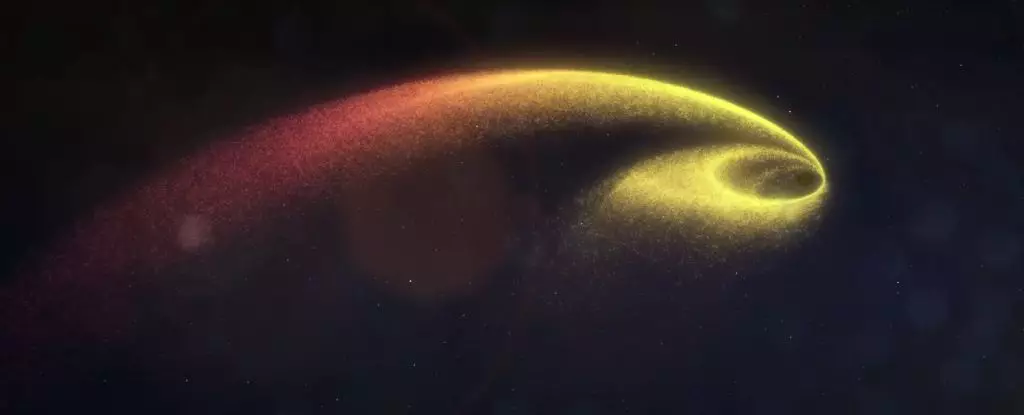

Black holes are some of the most mysterious and fascinating objects in the universe, with supermassive black holes at the centers of galaxies being particularly intriguing. Recently, a team of scientists led by astrophysicist Dheeraj Pasham from MIT made a significant discovery by measuring the spin speed of a black hole based on the wobble of its accretion disk. This marks the first time that scientists have been able to calculate the spin speed of a black hole using this method, providing a new tool for understanding these enigmatic cosmic entities.
The supermassive black hole observed in this study was found to be spinning at less than 25 percent of the speed of light, which is relatively slow for a black hole. While this number may not seem particularly groundbreaking on its own, the ability to measure the spin speed of black holes opens up a world of possibilities for astronomers. By studying multiple systems using this method, scientists can estimate the overall distribution of black hole spins and gain insights into how these spins evolve over time.
Supermassive black holes play a crucial role in the evolution of galaxies, acting as gravitational hubs that bind them together. These massive objects range in behavior from quiescent to highly active, emitting some of the brightest light flares in the universe. The light emitted by black holes does not come from the black holes themselves, but rather from the material swirling around them as they feed. This material forms a disk that surrounds the black hole, providing valuable insights into their behavior.
In 2020, astronomers observed a tidal disruption event in a galaxy a billion light-years away, where a previously quiescent black hole produced a massive flare of light known as AT2020ocn. By studying this event in detail, researchers were able to observe the wobble of the accretion disk around the black hole, which provided key information about its spin speed. By combining this data with the estimated mass of the black hole, scientists calculated the speed at which it was rotating.
The technique used to measure the spin speed of the black hole in this study has opened up new avenues for research in astrophysics. Tidal disruption events occur frequently enough that by monitoring them with advanced instruments like the Rubin Observatory, scientists may be able to compile a distribution map of different black hole spins. This could offer valuable insights into the behavior and evolution of black holes over time, shedding light on the history of these cosmic phenomena.
The recent discovery of the spin speed of a supermassive black hole based on the wobble of its accretion disk represents a significant breakthrough in the field of astrophysics. Moving forward, continued research using this method could provide a deeper understanding of black holes and their role in the universe, offering unprecedented insights into these elusive cosmic entities.
In the realm of software development, the ability to swiftly and accurately address bugs is…
The realm of quantum computing and communication is not just an abstract dream anymore; it…
In a remarkable leap for the field of material science, a collaborative research initiative has…
Throughout Earth's vast history, our planet has endured five major mass extinction events that reshaped…
Rainfall is a vital element of our planet’s hydrological cycle, yet many aspects of its…
On a night when the universe aligns, a mesmerizing phenomenon awaits: the appearance of the…
This website uses cookies.